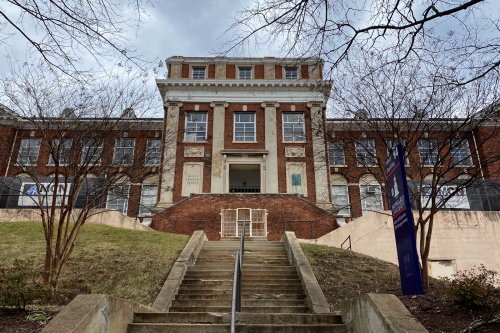By Hayya Shah
On July 16, the Biden-Harris Administration announced that Howard University has recently been selected to participate in the $160M U.S. Environmental Protection Agency (EPA) project for reducing embodied greenhouse gas emissions for construction materials and products.
Over 15% of annual global greenhouse gas emissions are estimated annually by the EPA as being emitted from the extracting, transporting, and manufacturing of construction materials and products such as steel. This transformative project will fund 38 grants ranging from $250,000 to $10 million from President Joe Biden’s Inflation Reduction Act reserve to report on and reduce climate pollution from these materials, making it the largest climate investment in U.S. history.
Manufacturing companies, non-profit organizations, and universities with the qualifying knowledge and expertise have been deliberately selected as grant recipients to help measure greenhouse gases and increase efforts to reduce the pollutants.
Nea Maloo, assistant professor in the Howard University Department of Architecture, will be collaborating with researchers from the University of Washington, the University of California, Berkeley and the Pacific Northwest National Laboratory on validating and expanding research and education for life cycle assessment (LCA) policy.
Of the $10 million EPA grant to be awarded to the University of Washington, Howard University is expected to receive $1.2 million for the initiative as partnering institutions will contribute their area of expertise.
“I am excited for this wonderful opportunity for Howard University students to have access to training and internships in LCA and become leaders in the profession. This initiative will expand our collaboration with the University of Washington and partners and help with integrating LCA education into the curriculum. The training of future students is also necessary to provide positive, actionable outcomes to help combat climate change,” said Maloo.
The initiative will further develop environmental product declarations (EPDs) and their use in the marketplace. EPDs provide data on the environmental impact of certain building materials. Another important anticipated result of the initiative is to increase the number of professionals trained in LCA to produce comprehensive EPDs through the development of open-source LCA curriculum and open-source digital resources that will be piloted in varied educational settings.
As an environmental justice and education expert, Maloo will work to lead the program at Howard and the collaboration with the University of Washington to incorporate LCA modules centered on environmental justice into curriculum. She will also recruit and mentor students for LCA training and explore the potential integration of LCA methods with local environmental health and justice efforts.
“We are very pleased that Professor Maloo and her team have been selected to implement this award. The group will be engaged in efforts towards development of clean energy, which is critically important to the future of this country, and of key importance to our students and communities,” said Howard University provost and chief academic officer Anthony Wutoh, Ph.D., R.Ph.
The U.S. is a world leader in producing clean construction materials and products and will require billions in tons of construction materials and products to build, maintain, and operate the country’s infrastructure.

